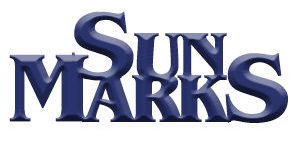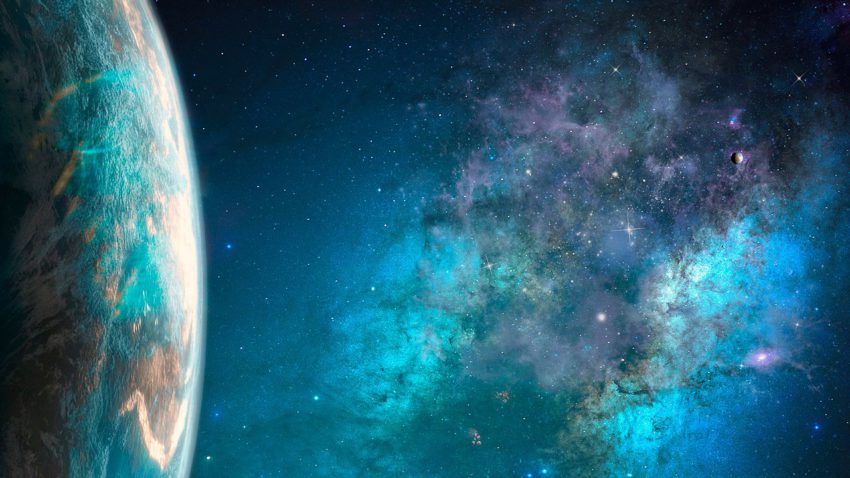Daniel Wasserman almost forgot to return the salute. He’d stepped on to the station landing deck from the transport, wrinkled flight fatigues, duffle bag over his shoulder. And when he saw the Lieutenant in duty whites standing at attention holding a salute, at first, the thought did not occur that it was for him. Until he remembered about the silver eagles on his collar.
He stopped, dropped his bag, and returned the salute, letting the other man end his.
“Lieutenant James Parker,” the other man said. He was older than Daniel—perhaps 60, give or take. A little shorter. Cropped hair ringing his head, over space-black eyes. Or maybe he wasn’t that old, Daniel thought. The balding could be skewing his judgment. “Welcome to Hephaestus,” Parker finished.
“Thank you, Lieutenant,” Daniel said. He remembered Parker from the dossiers he’d perused in transit—Parker would be his XO. Specifically, he specialized in surface-to-orbit logistics. Not too much different than Daniel’s own background in logistics generally. His big break had been during the war, organizing all of the logistics for the Venus-based assault that took Hephaestus back from the Euro-Martian alliance.
Launching the attack from Venus—where the Europeans and Martians never thought to look—had also been Daniel’s idea. But as a commoner, there wasn’t any way he’d get credit for that. He was lucky enough that his mentor, Admiral Lord Wallace, was liberal enough in outlook to take his suggestion seriously, and then give him that logistics role. For Wallace’s own part, that victory had gotten him the command of the Colonial Sector. And with that role, he’d exercised his influence for a special dispensation giving Daniel a provisional promotion to Captain. Not in Solar space, of course.
At the back, a heavy wooden bar staffed by an InBot that Daniel had been told owned the place. Except that “he” didn’t look like Daniel had read InBots were supposed to look. The creatures who had made them had six limbs and four eyes and had made their robots to match (a type of “alien android,” Daniel had thought). This one—and many of the others on Hephaestus—were re-making themselves to more closely resemble humans.
Hephaestus was home to a particular sort of microorganism community. When first discovered, the biologists didn’t know what to call it; it did not fit in to any of the “normal” biological kingdoms. Not bacteria, fungi, plant, or animal, but something in between plant and fungi. Like plants, they lived in part off of solar electromagnetic energy. But they also drew power from the planet’s magnetic field; aided in part by their carbon-copper-silica cell walls. And they stacked on top of each other like coral, leaving the stuff behind as the communities grew.
The first humans on Hephaestus—the founders of the New Philadelphia Free Colony—realized that there was something special about the stuff: An earlier civilization had left behind huge pits where the clay-like substance had been dug up. So they sent some back to Earth, where it was discovered that when melted at 1,500 degrees and cooled into a ceramic, the material would superconduct at about 270 degrees Kelvin. Fragile stuff, ceramic wires and circuits—biggest problem on a ship in battle wasn’t keeping it cool, but protecting it. Too many bad hits and your power mains would burst into a million shards.
It was possible to synthesize the material, but, as with spider silk, it was difficult to do correctly. There were other colonies with similar organisms, but none so far had the sheer amount of the material as Hephaestus.
“Can I take your bag, sir?” Parker asked.
First command decision, Daniel thought. Go the traditional imperious route? “I’ve carried it this far,” he said. “Another few meters won’t make a difference.” He shouldered the bag, and they walked out of the hangar.
“How would you like to proceed, Captain?” Parker asked.
“I think I would like to get planetside as soon as convenient,” Daniel said. I part because he hadn’t been on a solid planetary surface for six months. He was looking forward to going for a good run on real ground in real air. But also because he wanted to see the place firsthand.
“That’s unusual,” Parker said. “The last commander hardly ever spent any time at all on the surface.”
“I know,” Daniel said. “Speaking of which, have the civilians been informed of my assuming command of the garrison?”
“In fact, no, sir. We have only just told them that Lord Captain Winstead has left.”
They had been walking down a corridor lined with bulkheads. They stopped at the one with the word “CAPTAIN” glowing on the ID panel. “Here’s your office,” Parker said.
Daniel put his hand on the panel, and the door slid open. “Do I have one of these planetside?” he asked.
“There is a small barracks near NewPort City. But I think Lord Winstead used to stay in the Presidential Suite in the big hotel.”
“When was the last time you were planetside?” Daniel dropped the duffel bag, and slid in behind the desk, and motioned for his XO to take a seat. The walls of the office gleamed with stainless steel. The desk in the middle—made of dark-stained mahogany with a brown leather chair behind it—clashed. Behind the desk, a wall-sized window framing the planet. Daniel could imagine the impression this was designed to make on a visitor. Spacious office, heavy imported desk, a noble officer in dress whites behind the desk, the AngloAmerican flag to one side, the planet behind. Designed to awe.
“Three years ago, perhaps?” Parker said. He sat, and unfolded a pad from his shirt pocket.
“That will change,” Daniel said. He turned on the computer built into the desk. He noticed that there was a message waiting for him on the desktop. From Winstead, Daniel surmised. He’d read it later.
“Why should that be, Captain? Our brief is to defend the planet. Lord Winstead had always maintained that orbit was the best place to do that from.”
“Do you know what happened on the surface during the Euro-Martian occupation?” Daniel asked.
“Should I?”
“You should. Everyone should. The colonists ran a spirited resistance—a great deal of nuisance campaigns initially, but when the fleet arrived, they found that the enemy forces were not in control of the surface, except in spots. You said Lord Winstead stayed at the hotel: Are there accommodations at the barracks?”
“Not really.”
“OK. I’ll see about getting some modest accommodations until we can get a planetside post built.”
An exhausted open-pit mine—this one already tapped out by the time humans had arrived—sat on the northwest corner of NewPort City. As part of “beautification,” the city had built a running track, about 400 meters long, around the pit. Daniel ran; breathing the real air, music pouring in his ears, distracting him. He’d do at least five kilometers, or perhaps as many as seven, if he felt like it.
Each circuit held a snapshot of the city and its hundred-year history. Around the back stretch, he could see the city’s towers rising out of the gray clay ash; the four orbital elevators reaching toward up; and beyond that, the broad gray expanse of so-far unmined Clay.
As he would come around the back stretch, he saw the craters and scars from the Euro-Martian bombing. And around the front side, on the other side of the pit, a few small InBot encampments. And when he looked in toward the pit, very durable industrial signs written in an alien script. So far, humans had not encountered any other living extraterrestrial cultures but had come across the remnants of a few. Several hypotheses had been floated. The one Daniel liked best was the idea that they had evolved into patterned energy; didn’t need buildings and planets anymore.
The only non-terrestrial intelligence that had been directly encountered so far was, in fact, artificial. The civilization that had mined Hephaestus (and had settlements elsewhere) had left behind a race of sentient robots which someone had dubbed “InBots.”
He’d finished his ninth lap when he noticed a man sitting on one of the benches. On his tenth lap, the man was still there. Odd, that, since there wasn’t anything else going on, just Daniel—in civvies—running.
The man wore dark glasses, a blue light outer jacket. He sat, legs crossed, a pad on his knee. When the man was still there, looking directly in Daniel’s direction, on the twelfth lap, Daniel decided to stop and see what the story was. He slowed to a walk, and approached the bench. The man rose.
“Seeing anything interesting?” Daniel asked.
“Only a new officer from Earthside,” the man said. He extended a hand. “My name is Jack Mere. You must be, if I have it right, Lieutenant Commander Wasserman?”
“Jack Mere. Of Mere Freight Systems?” Daniel asked. Mere Systems ran about 40% of the freight to and from Hephaestus. The Meres were among the original settlers of New Philadelphia. The Meres and some others had left Earth for political reasons, been granted a charter, and had established a colony several kilometers away from where NewPort City would later be built.
“That’s right,” Mere replied.
“You must have an impressive network of contacts,” Daniel said. “But your information is not completely correct. I’m a Captain.” The Meres ran a fleet of freighters that moved between Earth and Hephaestus, and between Hephaestus and New Texas and Oceania. His crews would end up talking to a lot of people across AngloAmerica’s interstellar holdings. He probably had a better informant network than NorthStar Network News.
“Not really,” Mere said, “From what I understand your rank is as auxiliary, as you’re a commoner.”
Daniel tipped his head. “Technically, that’s correct. However, my point still obtains. Since, as a commoner, I wouldn’t be able to be a Lieutenant Commander, either.”
Mere smiled, the wrinkles on the sides of his mouth folding up. “Fair enough,” he said.
“I don’t see a vehicle. I assume you must be headed back to the city center? Mind if I walk with you?” Daniel said.
“Heading back to the Gulch, actually,” Mere replied. New Philadelphia sat in a valley—made green by the settlers—between two eroded volcanoes—that they called “the Gulch.” “I told my pilot to pick me up here in about 15 minutes.” He paused. “If you like, I can take you over to the Gulch. Might be interesting for you to see it. Would be interesting for us out there to see you. His Excellency Lord Sir Winstead never made out there. Hell, he hardly ever made it to the surface. And you’ve been here two days, and you’re down here already.”
“Thank you for the invitation,” Daniel said. “I hope I might take you up on it another time? I think it might be best if the rest of the colony knew I was here before I start taking trips to specific parts of the planet.”
“Right,” Mere said. “I’d forgotten most people don’t know you’re even here yet. Most planetside only recently got confirmation that Winstead was finally gone. Although the Vulcan’s Hammer had been reporting on that for months.”
“The Vulcan’s Hammer? What’s that?”
“Surprises me not in the least that it was left out of your briefings,” Mere said. “It’s the most-read Hephaestus news site—a lot of people around here get an N3 feed; but rely on the Hammer for local news. Not a surprise to me, though, that Winstead wouldn’t have mentioned it in his reports.”
Later, back at the hotel, Daniel opened the message that had been left for him on his office desk. It read:
To my unfortunate successor:
I cannot imagine what you must have done to merit this dismal assignment. Probably it was something not quite illegal—perhaps merely dishonourable and not prosecutable. And just not quite disgraceful enough to merit expulsion from the peerage and forfeit of your title and commission.
In any case, you have my condolences. This will likely be your most distasteful posting since having to bunk with commoners during basic training (dreadful Yank custom—my apologies if you happen to be a Yank).
You will find your role here quite useless. The main approaches to the system are ably patrolled by our Navy, and so the system itself will not conceivably be under external threat.
Internal threats are quite another matter.
The locals here are a sad lot. No wonder most aristocrats want no part of this place despite the value of the Clay. On balance, the rabble here are far too radical. They do not respect their betters; they have no use for authority even after all we have done and sacrificed for their benefit. Arrogant ingrates, all. You’ll do well to have as little to do with them as you can.
I would say to you, dear fellow: Keep your head down; work whatever family connections you might still have; and perhaps your exile here will be mercifully short.
You have my prayers.
Yours,
Lord Captain Sir Winston Winstead.
Well, Daniel thought. He tossed the letter into the desktop trash. Then he thought better of it and pulled it back out. Might be interesting to hold on to this.
He’d been told that Winstead had chosen to retire after a successful tenure here. This letter, together with the things that Parker had told him seemed to indicate that his information was, at best, incomplete.
He was out here, alone. His experience was in logistics; but also training in flight and flight combat. Although, as a commoner, he hadn’t been allowed to fly in combat.
He needed information. He needed contacts. There was Beth Franklin who runs the Vulcan’s Hammer. There was Jack Mere. But, he thought, those two would have particular view points. They might have good information—and they were probably worth cultivating. But he needed someone less biased.
Mere had mentioned that there was a NorthStar News beat reporter. Maybe that might work. He turned back to the computer, and started to run a search.
The following evening, Daniel sat at a table in a NewPort bar called Vesty’s, sipping iced tea. Small metal tables scattered around a large, loft-like space. Floors made of stone; walls of wood.
Meeting Ricky the InBot was already a valuable experience. More complicated and more cleverly designed than the types of robots made by humans, they were made like organisms, made, essentially, out of nanobots. These nanobots would circulate throughout their bodies; each carrying a copy of the InBot’s body plan; repairing systems, metabolizing raw materials—their bodies were constantly being renewed and repaired.
Daniel sat in the bar, watching Ricky interact with the humans, and also with some of the other InBots that would wander in. If he closed his eyes, he could imagine that there were only humans in the bar; which spoke to the effort the InBots were putting into becoming “human.”
But the InBots weren’t Daniel’s primary object today. He was waiting and watching for the NorthStar News staffer that he’d learned would hang out here. Eventually, a man in his 60s wandered in. Dressed differently than the miners and dock workers; he wore faded jeans, brown shoes, collar-less button shirt, white jacket. He walked up to the bar, and the InBot behind the bar greeted him.
“Hello, Clark. Usual?”
Clark slid on to the bar stool. “Sure,” he said.
Daniel looked the guy over. Clark, he thought. Clark Hamm? The guy who trashed Neil? That’s the NorthStar reporter? Daniel got up and walked out.
Daniel had still been in ROTC in college when the Euro-Martian alliance had invaded Hepheastus. Neil—Admiral Wallace—Captain Wallace at the time—had led one of the fighter wings tasked with stopping the assault by preventing the invasion force from leaving the Solar System. They’d failed—and shortly after, Clark Hamm had written a piece blaming Neil for the failure—and due only to Neil’s title. The underlying theme: Neil had his command because of his title; open ranks would have led to more competent officers. While Daniel agreed with open ranks (and he had a vested interest in that), he knew, from Neil, that the invasion fleet had had such a big jump on them, that no one would have been successful in that mission. And the fact that Hamm had singled out and personally attacked Daniel’s mentor pressed at his gut. At a minimum, the guy could not be trusted. After all, the material for that piece? Had come from an interview Neil had given Hamm on the eve of battle.




